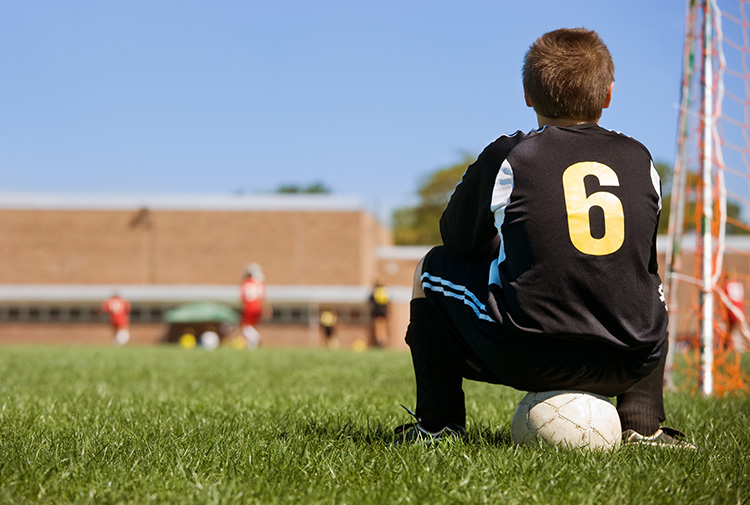- Community & News
- Conditions & Care
- Orthopedics
- Patient Stories
- Service Line
- Treatments
Concussion Management: How Long Should My Child Sit Out?

When it comes to concussion management, Richard Okragly MD, from the Bethesda Family Practice Center and Director of TriHealth's Sports Medicine Fellowship program, stresses if there's one thing to do post-concussion, it's this: Stay on the sidelines until you're asymptomatic.
The Issue: Identifying Concussions is Tricky
Per Ohio's Concussion Law, public and private schools and youth sports organizations are required to educate coaches, parents and students on the signs and symptoms of concussions. "It's challenging diagnosing a child or patient with a concussion, based on the vagueness of the symptoms. We are probably erring on the side of caution, as we should, especially with our younger, grade school athletes," Dr. Okragly explains.
Common concussion symptoms include:
- Dizziness
- Changes in behavior
- Headaches - that aren't normal for the individual
- Nausea or vomiting
- Blurred vision
- Difficulty concentrating
- Confusion
- Sensitivity to light
It's important to note, however, that symptoms can take 24 to 48 hours to develop.
Playing too Soon After a Concussion: What's the Problem?
A majority of people who have sustained a concussion will need to be sidelined for at least seven to 10 days, but in some cases, an individual could take several weeks to heal.
CT scans and MRIs from concussion studies don't show structural changes, such as bleeding, in a concussion. Instead, "it's more of a brain chemical change, where the cells become damaged on the cellular level and require more nutrients - more energy - in order to repair themselves," Dr. Okragly points out. "It's during that time, when they're deficient in what they need for their body to run normally, and they get hit - that's what causes the problem."
While rare, if someone does play through a concussion and they sustain another blow to the head, they're at risk for massive brain swelling. Emily Dixon DO, of Beacon Orthopedics and Sports Medicine, says you don't have to be knocked on the unconscious, hit your head on the ground, or be directly hit in the head in order for a hit to cause problems. "The repetitive force of the brain kind of going back and forth in your skull can cause minor damage."
Pay Attention to Symptoms and Be Honest
If you think your child has experienced a concussion, you have to rely on him or her to let you know that he or she feels fine, which means honesty is critical.
Part of Ohio's Concussion Law requires kids to sit out until they're symptom-free or back to their baseline. Baseline is determined by a pre-season exam, conducted by a trained professional, used to asses an athlete's balance and brain function. "Some concussion symptoms can overlap with ADHD (attention deficit hyperactivity disorder), depression, and sleep problems, and so there may be some mild symptoms that happen at baseline," Dr. Okragly explains. "Then, when they get concussed, they can't tell which symptoms are which, so it's a matter of when they're feeling back to their baseline."
Related Articles
- Conditions & Care
- Pediatrics
- Primary Care
- Service Line
- Treatments
- Conditions & Care
- Diabetes
- Disease & Symptom Information
- Patient Stories
- Service Line